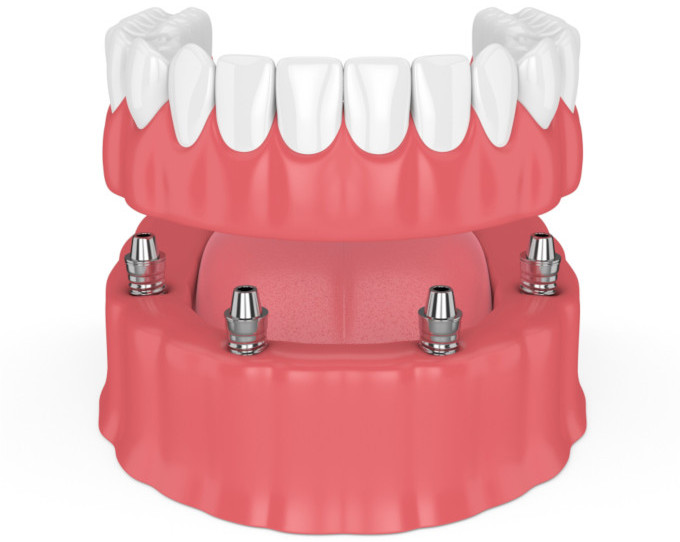Recommendations for a fixed bridge
A fixed bridge is recommended for:
- When a dental implant cannot be used
- Fill space of missing teeth
- Maintain facial shape
- Prevent remaining teeth from drifting out of position
- Restore chewing and speaking ability
- Restore your smile
- Upgrade from a removable partial denture to a permanent dental appliance
Steps to making a fixed bridge Receiving a bridge usually requires two or more visits. While the teeth are numb, the two anchoring teeth are prepared by removing a portion of enamel to allow for a crown. Next, a highly accurate impression (mold) is made which will be sent to a dental laboratory where the bridge will be fabricated. In addition, a temporary bridge will be made and worn for several weeks until your next appointment.
At the second visit, your permanent bridge will be carefully checked, adjusted, and cemented to achieve a proper fit. Occasionally, Dr. Rotter may only temporarily cement the bridge, allowing your teeth and tissue time to become accustomed to the new bridge. The new bridge will be permanently cemented at a later time.
You will receive care instructions at the conclusion of the procedure. Proper brushing, flossing, and regular dental visits will aid in the life of your new permanent bridge.
Fixed Bridge Disadvantages
For many years, the fixed bridge has been the gold standard when replacing a single tooth. It remains an important tooth replacement technique. To make a bridge, the dentist must reshape the abutment teeth so that crowns may be made to cover them. A dental lab makes two crowns and a pontic in one piece. Dr. Rotter cements or bonds the bridge to the abutment teeth. The bridge is made of porcelain alone or lined with metal. Fixed bridges are durable and long lasting. The advantages are that the bridge will not normally come out, and it will look and feel much like the original tooth.
The disadvantage is that if anything happens to one of the abutments the entire bridge may be lost. Also, reshaping a tooth to make it a bridge abutment makes it more likely to require root canal treatment and passive bone and gum loss under the bridge may result.
Fixed Bridges | Cosmetic and Restorative Dentist in Pembroke Pines – Astrid M. Rotter DMD serving Pembroke Pines, Miramar, Weston, Davie
You deserve to have a beautiful and functional smile. We also offer other restorative dental procedures such as:
To learn more, do not hesitate to contact our office in Pembroke Pines today!
(954) 433-8880
[toc]

